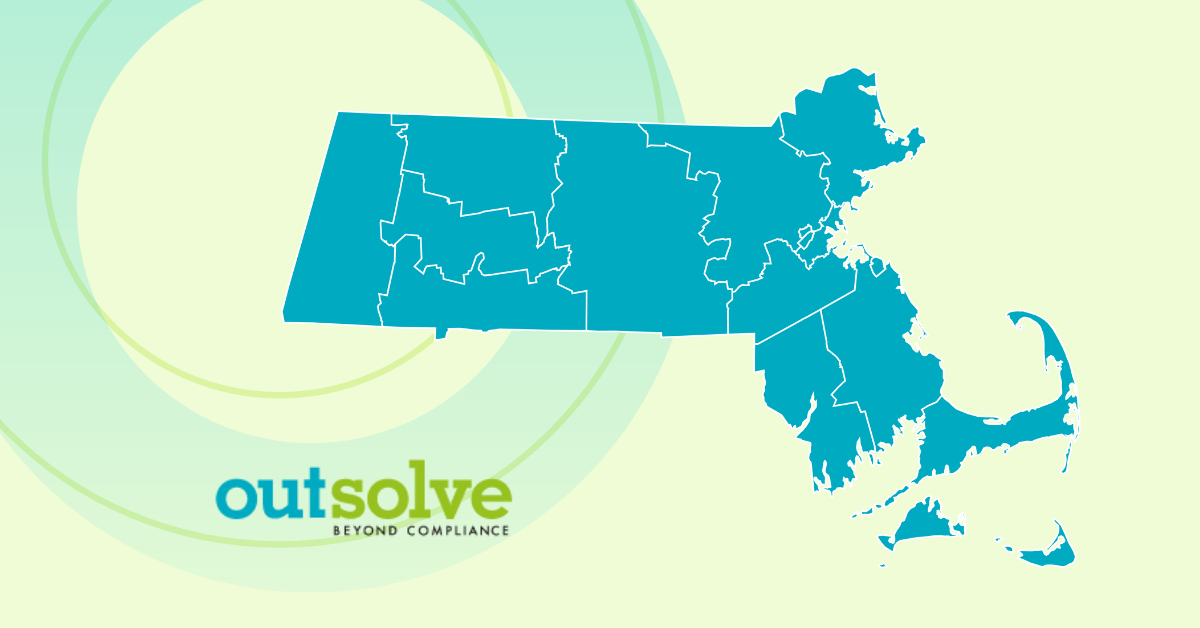3 min read
Massachusetts Enacts Comprehensive Pay Transparency Law: What Employers Need to Know
 Neil Dickinson
:
Aug 15, 2024 11:45:00 AM
Neil Dickinson
:
Aug 15, 2024 11:45:00 AM

On July 31, 2024, Massachusetts Governor Maura Healey signed the "Frances Perkins Workplace Equity Act," a significant step towards pay transparency in the state. This new legislation imposes crucial requirements on employers, aimed at promoting fair pay practices and reducing wage disparities.
Overview of the Massachusetts Law
The Act applies to employers with 25 or more employees in Massachusetts and introduces several key mandates:
Salary Range Disclosure: Employers must include the "pay range" in job postings and provide this information to employees in certain circumstances, such as promotions or transfers. The "pay range" is defined as the annual salary or hourly wage that the employer reasonably expects to pay for the position at the time of the posting. Notably, the law does not require the disclosure of bonuses, commissions, or other benefits.
EEO and Pay Data Reporting: Employers with 100 or more employees are required to submit annual reports detailing workforce demographics and pay data categorized by race, ethnicity, sex, and job category. This report must be submitted to the Secretary of the Commonwealth by February 1 each year, with aggregated data published on the Department of Labor’s website by July 1.
Prohibition Against Retaliation: The law protects employees who enforce their rights under the Act, make complaints, or participate in related legal proceedings from retaliation by their employers.
Enforcement: The Massachusetts Attorney General is responsible for enforcing the Act. The law includes a tiered penalty system, with initial violations resulting in warnings and subsequent offenses subject to fines ranging from $500 to $25,000. The law does not allow for private lawsuits, which is a departure from similar laws in other states.
OutSolve's Take
The Massachusetts salary range disclosure requirement is part of a broader trend toward pay transparency across the United States. Massachusetts disclosures are less comprehensive than other state posting regulations limiting the disclosure requirements to base salary or hourly wages and not including additional compensation forms. As a reminder, OutSolve continues to support California and Illinois pay reporting.
The EEO and Pay Data reporting requirements sets up Massachusetts as the third state to require compensation submissions (California and Illinois already have these requirements).
There are still a number of unknowns around this piece of legislation. As written, employers would need to submit their EEO-1 reports to Massachusetts annually. However, EEO-1 reports do not currently capture compensation data which is also required to be submitted by law. Massachusetts will need to provide guidance on the additional reporting elements or templates to capture pay data. Additionally, it is currently unclear if Massachusetts employers would be required to report EEO and pay data on employees that reside in Massachusetts or on all US employees.
Next Steps for Massachusetts Employers
With the new law set to take effect in 2025, Massachusetts employers have time to prepare but should not delay in developing their compliance strategies:
Review and Adjust Pay Practices: Employers should begin by reviewing their current salary structures and pay practices to ensure they align with the new disclosure requirements. This may involve developing more rigorous salary band architecture or adjusting current pay ranges to ensure consistency. Consider annual pay equity analysis to provide insights into pay gaps. Performing pay equity analyses in Massachusetts carries extra benefits: the Massachusetts Equal Pay Act (MEPA) provides a "safe harbor" for employers who conduct a good faith self-evaluation of pay practices and demonstrate reasonable progress toward eliminating gender-based wage differences.
Prepare for Reporting Requirements: Employers with 100 or more employees should review their EEO-1 reporting processes to ensure they can meet the February 1, 2025, deadline for submitting pay data to the state. Given that the data will be published in aggregated form, it is crucial that employers accurately report this information to avoid potential penalties.
Develop a Communication Strategy: Transparency around pay can be a sensitive issue. Employers should consider how they will communicate these changes to employees, particularly when disclosing pay ranges for the first time. Clear and consistent communication can help mitigate potential concerns and reinforce the company's commitment to fairness and equity.
Monitor Legal Developments: As other states continue to enact similar laws, employers with operations in multiple states should consider harmonizing their approach to pay transparency across jurisdictions to simplify compliance and reduce legal risk.
OutSolve's Support
Stay tuned to OutSolve channels and subscribe to our blog for updates on the EEO-1 pay reporting requirements which are currently scheduled to be submitted by February 1, 2025. OutSolve will be prepared to assist with the submission of these reports.
OutSolve is ready to support you with these pay equity services, including proactive pay equity reviews and compensation benchmarking and salary structure development that will help your organization prepare for ongoing pay transparency and pay equity requirements.
Leading Compensation Services at OutSolve, Neil helps organizations align pay, performance, and compliance through data-driven benchmarking, pay equity analytics, and global pay transparency initiatives. His team partners with employers across industries to design and operationalize compensation programs that are fair, competitive, and compliant—supporting business growth, workforce trust, and readiness for evolving regulations, including the EU Pay Transparency Directive. Neil brings over 20 years of experience working with HR, Talent Acquisition, and Compensation teams across the country to build best-in-class compliance programs. He has supported clients in EEOC equal pay charges and has also designed Pay Equity Analytics to provide federal contractors better visibility to pay gaps within their organizations. Neil regularly delivers training on compensation topics for SHRM, ILG, and other industry HR group events. Neil received his undergraduate degree from the University of South Carolina and The University of Hull in England and his MBA from The Citadel. He is also SHRM certified.
Weekly OutLook
Featured Posts

5 Key Compliance Items HR Can’t Afford to Ignore

HR Compliance Checklist: What Every HR Pro Needs to Know
Related Posts

What Texas HB 149 Means for HR Professionals
AI is already changing how companies hire, manage, and evaluate employees in the workplace. For HR professionals, AI is a game changer because it can...

New Jersey Pay Transparency Laws: What You Need to Know
Update: New Jersey proposed updates to its pay transparency law in October 2025. If passed, the requirements will be a first of its kind in that...

Legal Series: Top 4 HR Compliance Trends to Watch in 2026
This article is part of an ongoing legal series designed to provide insight and practical guidance on current and emerging workplace compliance...

